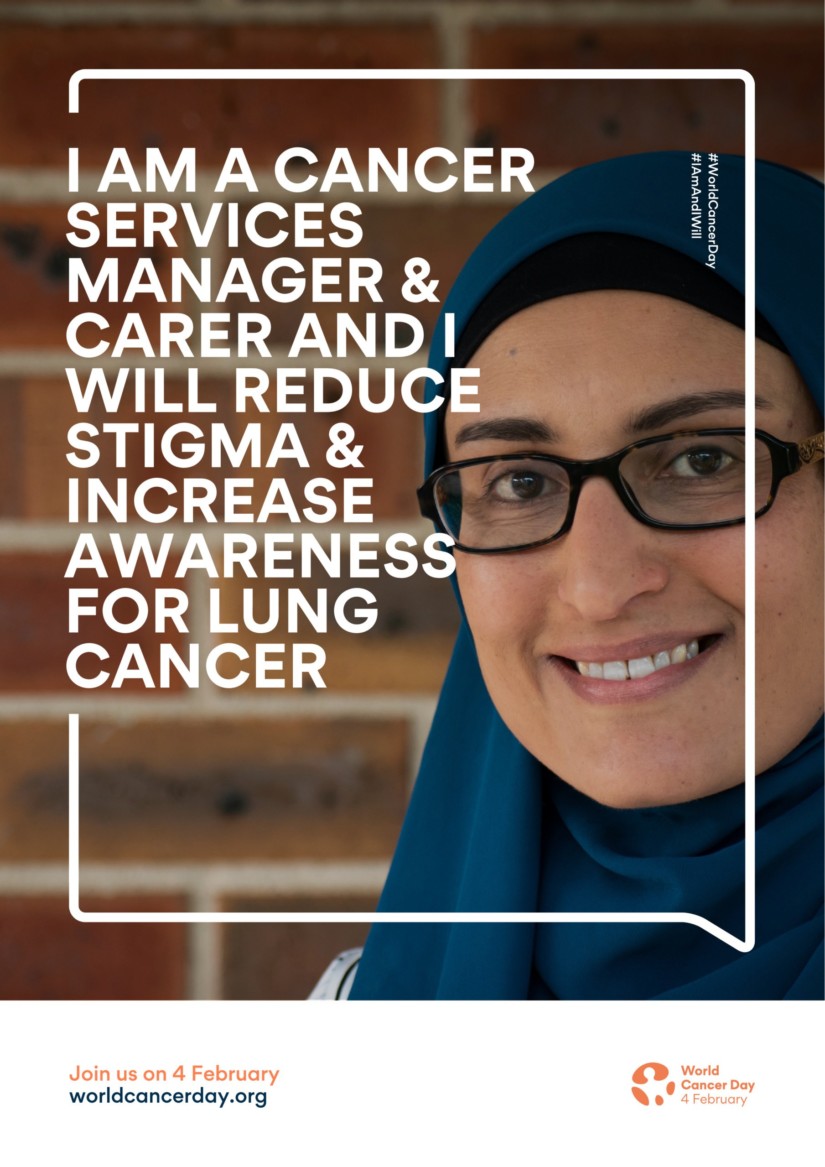Nasreen’s Walk for Lung Cancer Research
3 February 2020
News

My Story
Lung Cancer has hit my family hard over the past 10 years. I have lost my father, my husband Izzat and both of my in-laws to this disease. In 2011, my father’s diagnosis took us by surprise because essentially, he was fit and healthy and had no symptoms. Within a short time the disease deprived us of him. His morals, generous nature, intelligence and wit is what I hold onto every day when I think of him. In 2017, my husband developed back pain that turned out to be a metastatic lesion from Lung Cancer. We were devastated. But Izzat soldiered on through the pain, continued to work and live life to the fullest despite the disease. He refused to lie down and fought as hard as he could against the odds. I can’t put to words the devastation you feel when you are hit with a life changing diagnosis. His focus changed to ensuring that the kids and I were going to be ok. Our family and friends were shocked because Izzat was relatively young (50) and was a much loved and respected member of the family and community. Lung Cancer once again claimed another member of my family. As I come to terms with my loss, I went in search of fundraising campaigns in Australia for Lung Cancer and I was disappointed to find very little if any. November is Lung Cancer awareness month and despite all the walks, runs and social campaigns that took place around the world, I could not find anything that I could contribute to in Australia. So I am determined to do some fundraising for Lung Cancer research and build awareness. Like Izzat, I will soldier on and work hard to help others and like my father, I will be generous and steadfast in my cause to fight Lung Cancer.
The Campaign
The stigma surrounding lung cancer has had a devastating impact on the level of funding, research and support available to people living with lung cancer. Although it is by far the most common cause of cancer death in Australia and worldwide, it only attracts 5% of research funding. The InLuCC fundraising campaign aims to break down the stigma and increase awareness of this neglected disease. All funds will go to the team of world class researchers at the Ingham Institute of Applied medical research specifically for lung cancer research. There are a number of different research opportunities in the Lung Cancer space, one of which is to establish a lung cancer biobank that will assist researchers to improve their understand of the disease and provide a basis for cancer control using targeted treatments and to hopefully find a cure.
My pledge
Inspired by the Jog for Georgie campaign in the UK, I pledgde that come rain, hail or shine: I would run, jog or walk at least 3km a day, every day, for a full year; 365 days. My aim was to raise $20,000 within the year. If I didn’t hit the target within the year, I planned to set myself a new challenge and continue until I did. If I hit the target within 6 months, I planned to set a new target and continue my pledge. My campaign commenced on 1/1/2019 and I reached my 365 day target on 31/12/2019 and exceeded my fundraising goal.
The facts
Lung Cancer accounts for 9% of all cancer diagnoses in NSW, the fifth most common cancer and it is estimated that 12,741 Australians will be diagnosed with lung cancer in 2018. 9198 people are estimated to lose their lives to this disease in NSW and an estimated 9.6 million deaths worldwide. One Australia dies every hour from lung cancer and the rate of death is more than breast, prostate and ovarian cancers combined. Approximately 80% of Lung Cancer cases are thought to be caused by smoking. Other causes include:
- Genetic factors
- Air pollution
- Passive smoking
- Exposure to asbestos, radiation and radon gas
5 year survival of Lung Cancer is extremely low at 17%. 1 in 3 women diagnosed with lung cancer in Australia have never smoked and 29% of incidence in men is related to workplace exposure. Incidence of lung cancer in young women who have never smoked appears to be on the rise. There are 16 cancers that can be caused by smoking not just Lung Cancer. 1 in 8 cancer cases and 1 in 5 cancer deaths are caused by smoking. There are also many non-cancer conditions that are attributed to smoking yet they do not have the same stigma attached to them as Lung Cancer. Compared with other cancers, poor mental health for those living with Lung cancer is 29.6% higher than average.
Read the original article and find links to donate at the Ingham Institute website here.